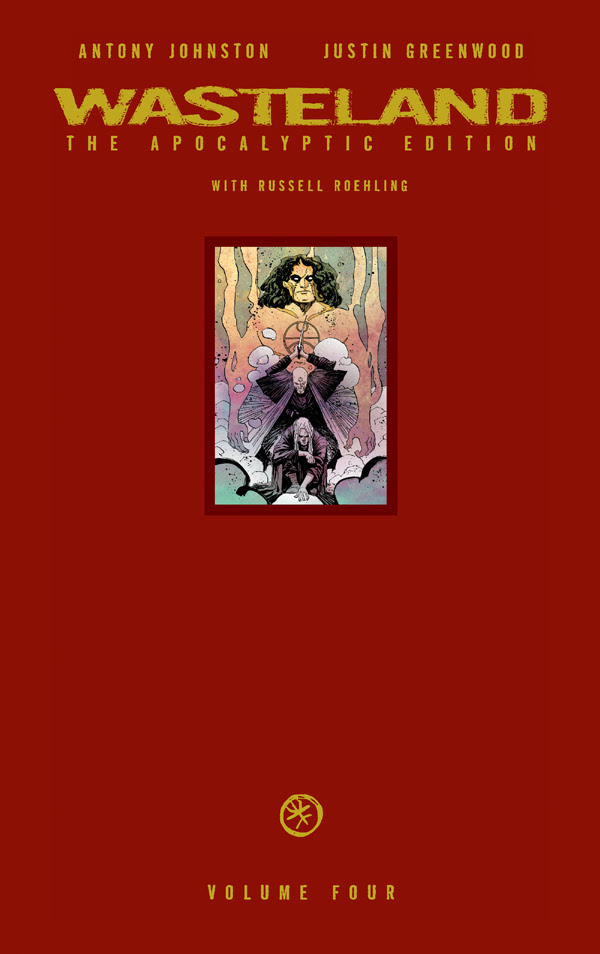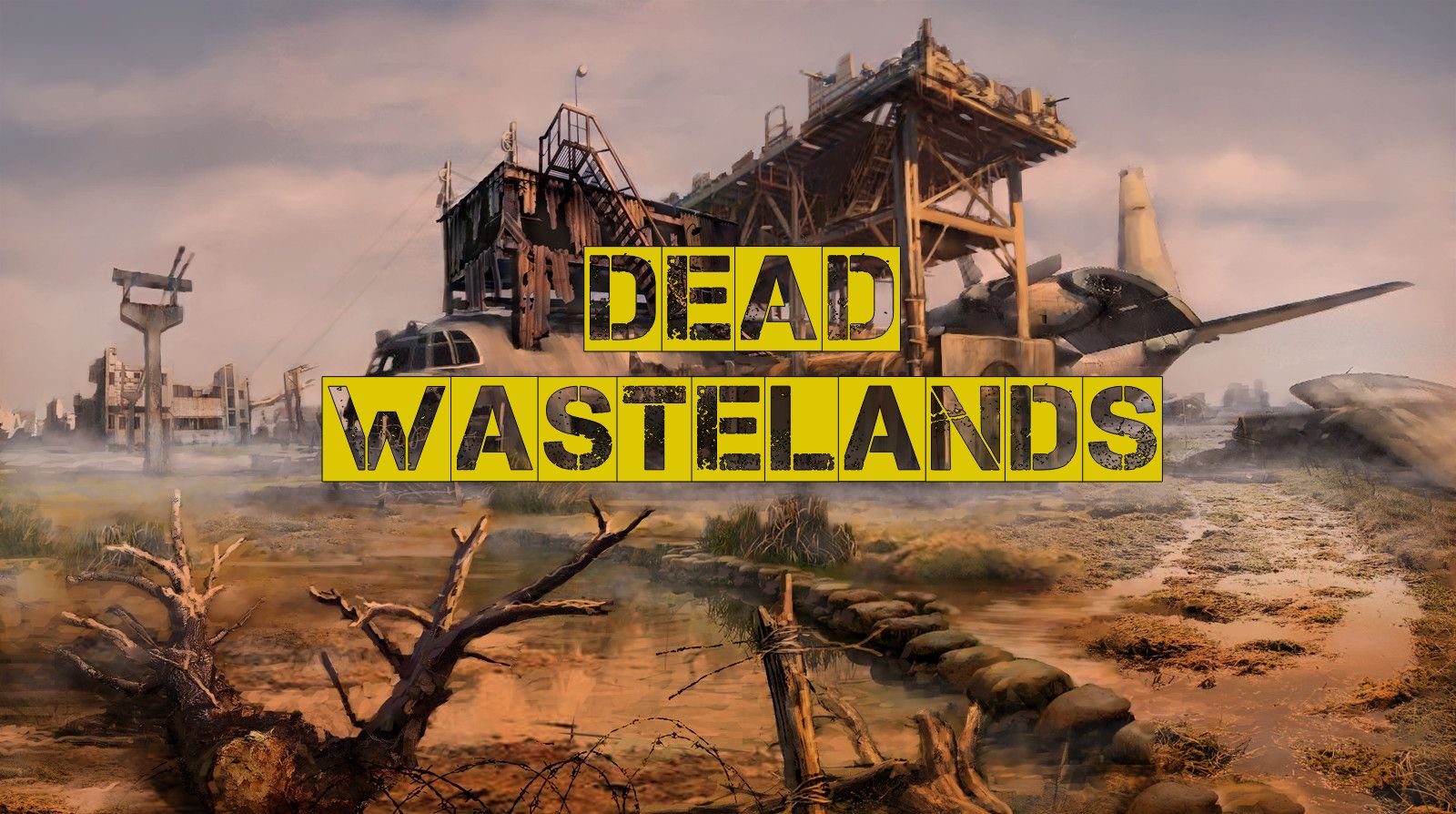Wasteland: A Post-Apocalyptic Saga Of Survival And Choice
Wasteland: A Post-Apocalyptic Saga of Survival and Choice
Related Articles: Wasteland: A Post-Apocalyptic Saga of Survival and Choice
Introduction
With great pleasure, we will explore the intriguing topic related to Wasteland: A Post-Apocalyptic Saga of Survival and Choice. Let’s weave interesting information and offer fresh perspectives to the readers.
Table of Content
Wasteland: A Post-Apocalyptic Saga of Survival and Choice

The Wasteland series, a cornerstone of the post-apocalyptic RPG genre, stands as a testament to the enduring power of storytelling and player agency. Since its inception in 1987, the series has captivated players with its bleak but compelling world, challenging gameplay, and intricate narrative tapestry.
Origins and Evolution:
The original Wasteland, developed by Interplay Productions, was a groundbreaking title that laid the foundation for the genre. Set in a post-nuclear war America, it tasked players with leading a group of "Desert Rangers," tasked with restoring order and justice to a ravaged world. The game’s isometric perspective, turn-based combat, and intricate dialogue system were innovative for their time, establishing the series’ signature gameplay elements.
However, the franchise encountered a period of uncertainty after the release of the original Wasteland. While Interplay continued to produce other titles, it was not until 2014 that the series experienced a revival with the release of Wasteland 2. Developed by inXile Entertainment, the game was a successful Kickstarter campaign that brought the series back into the limelight. Wasteland 2, a direct sequel to the original, offered a modern take on the series’ core mechanics, incorporating enhanced graphics, a more expansive world, and a deeper narrative experience.
The success of Wasteland 2 paved the way for Wasteland 3, released in 2020. This installment ventured into a new location, the frozen wasteland of Colorado, and introduced new gameplay elements, such as vehicle customization and a more complex faction system. The series continued to evolve, showcasing its ability to adapt to modern gaming trends while retaining its signature blend of tactical combat and narrative depth.
Gameplay Mechanics:
Wasteland games are renowned for their engaging gameplay mechanics, which blend turn-based combat with a rich narrative experience.
-
Turn-Based Combat: The series’ hallmark is its turn-based combat system. Players strategize their actions, utilizing character skills, weapons, and the environment to outmaneuver their opponents. The tactical depth of the combat system allows for a variety of approaches, from direct assaults to stealthy maneuvers.
-
Character Customization: Players have significant freedom in customizing their party members. From selecting their skills and abilities to determining their backgrounds and personalities, players shape their companions to suit their playstyle. This level of customization fosters a strong sense of attachment to the characters and their stories.
-
Dialogue and Choice: Wasteland games are known for their intricate dialogue system and the impactful consequences of player choices. Every decision, from negotiating with factions to choosing allies, shapes the narrative and impacts the world around the player. The series emphasizes the importance of player agency, ensuring that every choice has meaningful repercussions.
-
Exploration and World Building: Wasteland games feature expansive and detailed worlds, each with its own unique lore and history. Players explore these environments, uncovering secrets, completing quests, and engaging with various factions. The series’ world-building is meticulous, offering a rich tapestry of history, culture, and societal structures that have been shaped by the cataclysmic event.
Themes and Storytelling:
The Wasteland series explores a range of themes that resonate with players, including:
-
Survival and Resilience: In a world ravaged by nuclear war, survival becomes paramount. The games explore the human condition, the challenges of adapting to a hostile environment, and the resilience of the human spirit in the face of adversity.
-
Morality and Choice: The series consistently confronts players with difficult moral dilemmas. The consequences of their actions, both in the immediate and long-term, force them to grapple with the complexities of right and wrong in a world devoid of clear-cut answers.
-
Hope and Redemption: Despite the bleakness of the setting, the series offers glimpses of hope and redemption. The stories of individuals and communities striving to rebuild their lives in the aftermath of disaster provide a sense of optimism and inspire players to seek a better future.
-
The Power of Community: The Wasteland series underscores the importance of community in a post-apocalyptic world. Players rely on their companions, forge alliances with factions, and work together to overcome challenges. The games emphasize the strength of human connection and the power of collaboration in the face of adversity.
Impact and Legacy:
The Wasteland series has had a significant impact on the gaming industry, shaping the post-apocalyptic RPG genre and influencing numerous other titles. Its innovative gameplay mechanics, compelling storytelling, and exploration of complex themes have inspired countless developers and established a lasting legacy.
FAQs:
1. What is the story behind the Wasteland series?
The Wasteland series is set in a post-nuclear war America, where the remnants of civilization struggle to survive in a ravaged world. The original Wasteland, released in 1987, introduced the "Desert Rangers," a group tasked with restoring order and justice to the wasteland. Subsequent games have expanded upon this narrative, exploring different regions of the wasteland and introducing new characters and factions.
2. What are the core gameplay elements of Wasteland games?
Wasteland games are known for their turn-based combat, character customization, intricate dialogue system, and exploration. Players engage in tactical combat, personalize their party members, make impactful choices in dialogue, and explore detailed environments filled with secrets and quests.
3. What are some of the key themes explored in the Wasteland series?
The series delves into themes of survival, resilience, morality, choice, hope, redemption, and the power of community. It explores the human condition in a post-apocalyptic world, the challenges of rebuilding society, and the importance of human connection in the face of adversity.
4. What makes the Wasteland series stand out from other post-apocalyptic RPGs?
Wasteland games are known for their intricate world-building, complex narrative, and player-driven storytelling. The series emphasizes player choice, ensuring that every decision has meaningful consequences and shapes the narrative in unique ways.
5. What is the future of the Wasteland series?
The future of the Wasteland series remains uncertain, but its recent success suggests that it will continue to be a prominent force in the post-apocalyptic RPG genre. The developers have expressed interest in exploring new regions and expanding the series’ lore, hinting at a future full of exciting possibilities.
Tips for Playing Wasteland Games:
-
Embrace the Tactical Combat: Wasteland games are known for their challenging combat system. Take the time to strategize your moves, utilize cover, and exploit enemy weaknesses.
-
Customize Your Party: Experiment with different character builds and skill sets to find the right combination for your playstyle. The game offers a wide range of options, allowing you to create a team that suits your preferences.
-
Pay Attention to Dialogue: Wasteland games are known for their intricate dialogue system. Choose your words carefully, as every decision can have significant consequences.
-
Explore the World: The Wasteland games feature expansive and detailed environments. Take the time to explore these areas, uncover secrets, and engage with the various factions.
-
Don’t Be Afraid to Experiment: The Wasteland series encourages players to experiment with different approaches and strategies. Try out different combat tactics, dialogue choices, and character builds to discover the most effective ways to navigate the wasteland.
Conclusion:
The Wasteland series stands as a testament to the power of storytelling and player agency in the post-apocalyptic RPG genre. Its bleak but compelling world, challenging gameplay, and intricate narrative tapestry have captivated players for over three decades. The series continues to evolve, adapting to modern gaming trends while retaining its signature blend of tactical combat and narrative depth. As the series ventures into the future, it promises to continue its legacy of engaging gameplay, thought-provoking themes, and immersive world-building, leaving players to grapple with the enduring challenges of survival and choice in a world forever changed.








Closure
Thus, we hope this article has provided valuable insights into Wasteland: A Post-Apocalyptic Saga of Survival and Choice. We hope you find this article informative and beneficial. See you in our next article!